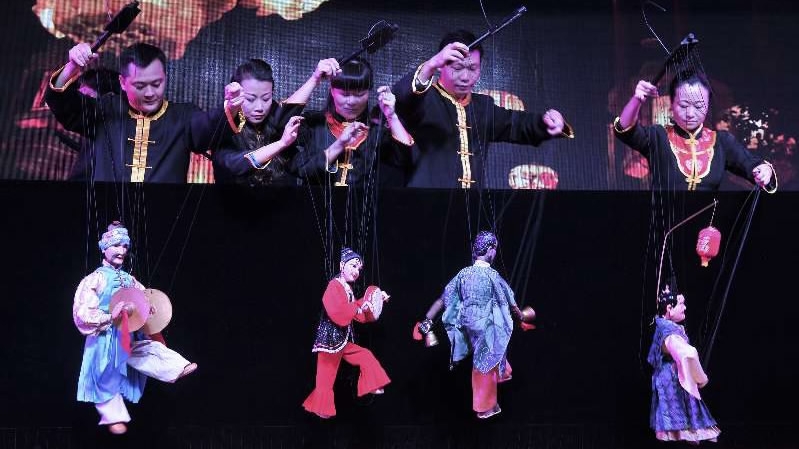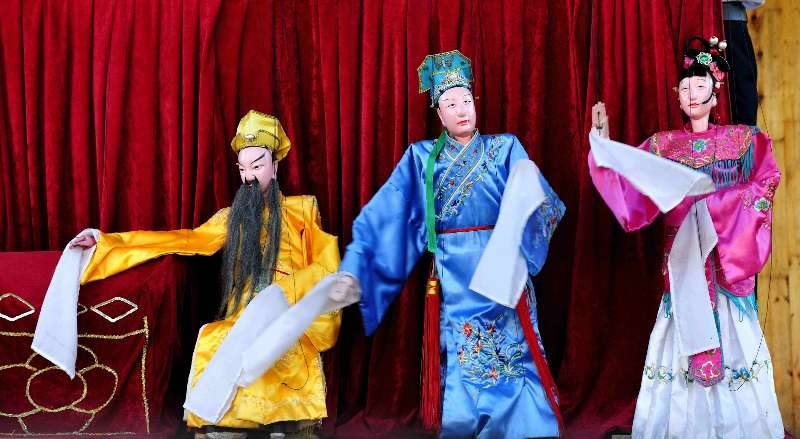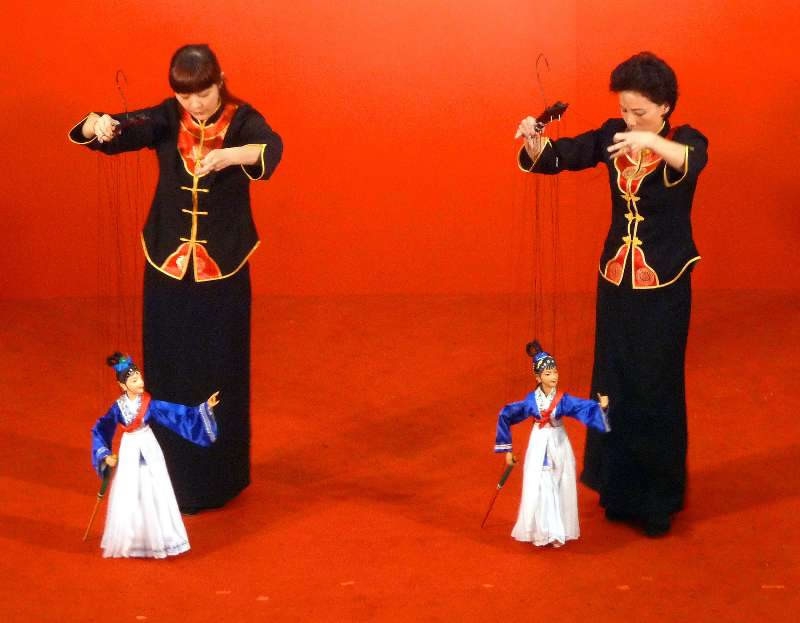
Culture
16:08, 07-Sep-2017
Traditional string puppetry revived in new generations
By CGTN's Sun Wei

Marionette art in Quanzhou, southeast China's Fujian Province, has a history stretching back further than two millennia, but towards the end of the last century, it seemed to be in danger of dying out. Luckily, Quanzhou Marionette Troupe (QMT) found ways to revive the ancient art and encourage a new generation of puppeteers.
Up on stage, 15 students from Wutan Primary School are presenting a marionette drama adapted from the story of Ximen Bao, a government minister during the Warring States period some 2,500 years ago. He is credited as China's first hydraulic engineer who had the State of Wei abolish the inhumane practice of sacrificing people to the river god He Bo. The children have been practicing for nearly a year.
String puppetry was popular in Quanzhou in ancient China. It derived during the Qin Dynasty (221-206 B.C.), and thrived during the Song, Yuan, Ming and Qing dynasties (960-1644), but it fell into decline when pop culture started to sweep the country in the 1980's.

CFP Photo
CFP Photo
Wang Jingxian is the artistic director of the QMT. "The worst time was in 1992. The QMT had no money to pay its staff for four months. There were then about 16 young artists in the troupe. Half of them quit. Some went abroad and some started their own businesses," he said.
But a new century brought new opportunities for the traditional art, with the appearance of the Quanzhou marionettes at the 2008 Beijing Olympic Games' opening ceremony and its inclusion in the list of national intangible cultural heritage, it has been given a chance for revival.
Wang Jingxian realized the need to attract young people. "Introducing it to the kids. That means bringing the art to schools. That is the root. Whether we can get money or not, we should never let go of the root," he said.

CFP Photo
CFP Photo
Citong Kindergarten was the first to collaborate with the troupe by including marionette art in its extracurricular activities. As the youngest artist in the troupe, Dai Xun was assigned to teach the kids how to make string puppets and perform marionette dramas – and he did all the work without pay. "Many schools discovered these classes were very interesting. And the results are also good, so they got involved in this project," he said.
In the past few years, the QMT has worked with a number of kindergartens and primary schools. Classes in string puppetry have attracted thousands of students. Many teachers have learned puppet making and performing, and new marionette dramas specifically designed for children have been created.
"If these children really like marionette art, they can be provided with higher artistic platforms. After graduation from the school, they might make it their profession. It's an efficient way of passing down intangible cultural heritage," said Dai Xun.
1682km

SITEMAP
Copyright © 2018 CGTN. Beijing ICP prepared NO.16065310-3
Copyright © 2018 CGTN. Beijing ICP prepared NO.16065310-3